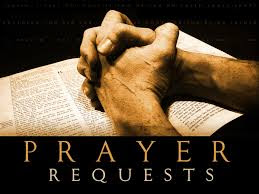Q: Numbers 10 talks about the two silver trumpets and the four different reasons for blowing them. Are these the same four notes that are blown on the shofar at Rosh HaShanah?
A: The four notes of the shofar that are heard on Rosh Hashannah are tekiah, shevarim, teruah, and tekiah gedolah. They each have different meanings, and some of them are, in fact, mentioned in Numbers 10. It is impossible to determine exactly what each of the sounds mentioned in this passage were. We can make inferences, and well-educated guesses, but that is all they will be.
Numbers 10:2 talks about the creation of the silver trumpets, and gives two reasons for using them. The first one mentioned is the calling of the congregation, and the second one is for directing the movement of the camps of the tribes of Israel, as they were stationed around the tabernacle in the wilderness. The calling of the congregation actually has it’s origins a little earlier, though. Exodus 19 relates the story of the Israelites camped around the base of Mount Sinai, prior to receiving the Torah. And the Lord instructs them in Exodus 19:13 not to approach the mountain until they hear the sound of the shofar. It even describes the sound. “When the trumpet sounds long, they shall come near the mountain.” This is the biblical foundation for sounding the shofar at the beginning of our services. We correlate the worship service to the experience at Sinai, and that is the clarion call that lets people know we’re heading up to the mountain. The first blast tells us, “Come, and let us go up to the mountain of the Lord, To the house of the God of Jacob.” (Isaiah 2:3) Based on the “sounds long” reference, this could either be tekiah or tekiah gedolah. It would definitely NOT be either of the other two based on the description.
Sounding the advance is the second sound that is discussed. Numbers 10:5-6 tell us that the first time the advance is sounded, the camps on the east start moving. The second time it is sounded, the camps on the south start moving. So this is a different sound from the one long blast that is heard to gather the congregation. Verse 7 is a little cryptic, but might give some idea as to what the sounding the advance might be. Numbers 10:7 says that it is possible to blow, but not sound the advance. This would seem to imply that the two sounds are fairly close, but not the same. The only two sounds that fit that description would be the tekiah and tekiah gedolah. Perhaps one of them had a slightly different ending, perhaps the quick transition to a higher note that we have come to associate with the blast of the shofar. There is no was to know for sure.
Numbers 10:9 talks about the sound of the alarm. This was to be sounded when going to war. The word used in the Scripture is, in fact, teruah. Rosh Hashannah is, in fact, called Yom Teruah in Leviticus 23, or Day of the Alarm. This one is a series of 9 short notes. It was never to be used except for the sounding of an alarm.
Numbers 10:10 talks about sounding the shofar during festivals and times of gladness, and at rosh chosdesh, which is the new moon indicating the start of a new month. Perhaps this the is final sound, shevarim, but there is really no way to infer that from the text.
There were a number of other times that the shofar was sounded. For example, it was blown at Jericho. So Numbers 10 is not an all-inclusive list. It is a great starting place, though.

